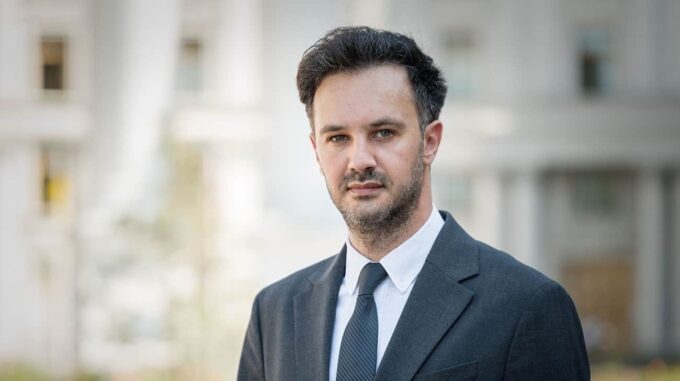The Ukrainian Ministry of Foreign Affairs issued a sharp response to street statements made by the Hungarian side, emphasizing the fallaciousness and futility of a primitive policy of demonizing Ukraine in contemporary interstate relations

The spokesperson for the Ukrainian Foreign Ministry, Georgiy Tkyhiy, stated that Kyiv fully supports the idea of good-neighborly relations with Hungary but emphasized that such relations should be based on mutual respect and equality. The comment was published in the context of recent events following a speech by Zoltán Kovács, a representative of the Hungarian government, who earlier on Tuesday made loud criticism regarding an interview of Ukrainian President Volodymyr Zelensky with the Hungarian portal Válsz Online. In his speech, Kovács accused Zelensky of hinting at support for the Hungarian opposition force "Tisa," and of the Ukrainian authorities allegedly engaging in potential provocations in relations with Budapest. The Ukrainian foreign policy spokesperson emphasized that official Budapest has not yet issued open calls to Russia for a ceasefire or to halt hostilities; instead, it continues to "absurdly accuse Ukraine of unwillingness to make peace," which constitutes a misunderstanding and provocation on the part of the Hungarian side. "The communication line of the Hungarian authorities, which demonizes Ukraine and President Zelensky, has reached a dead end. Where principled stance is needed, the Hungarian authorities remain silent. Conversely, in areas where it is necessary to find common ground and cooperation, they resort to unfounded accusations and provocations," Tkyhiy highlighted in his comment. According to him, such identification of the conflict creates a tense atmosphere and contributes to the spread of false allegations, which harms not only bilateral relations but also generally sustains tension in the region. The MFA spokesperson also underlined that Ukraine strives for good-neighborly relations with Hungary, but these impulses must be mutual. He noted that the Hungarian authorities’ reliance on primitive demonization of Ukraine is a shortsighted and short-term tactic that will only harm both peoples in the long run. "We expect that the era of hidden games and the search for imaginary enemies will come to an end. We hope that longstanding traditional good-neighborly relations will be preserved and developed in an atmosphere of mutual respect and trust," Tkyhiy concluded. For a more comprehensive understanding of the current political situation surrounding Ukrainian-Hungarian relations, it is advisable to read the analytical article by Sergey Sydorenko, editor of "European Pravda," titled "Orban’s Ukrainian plan. How Hungary’s leader aims to use Ukraine to win elections," which explores possible goals and scenarios of Budapest’s policy towards Ukraine, as well as the role of domestic political factors in shaping Hungary’s strategy in this conflict.

